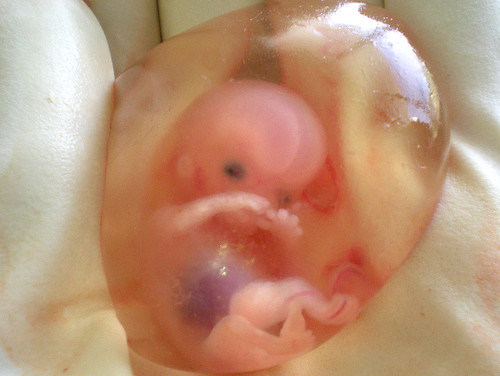We run our website the way we wished the whole internet worked: we provide high quality original content with no ads. We are funded solely by your direct support. Please consider supporting this project.
Did Jesus Have Two Minds?
As I laid out in the previous post, I believe Jesus is fully God and fully human. The question is: How is this possible? How do we talk about the way that Jesus was fully God and fully man?
The Creed of Chalcedon (451) tries to answer the question this way:
We, then, following the holy Fathers, all with one consent, teach men to confess one and the same Son, our Lord Jesus Christ, … truly God and truly man, … to be acknowledged in two natures, inconfusedly, unchangeably, indivisibly, inseparably; the distinction of natures being by no means taken away by the union, but rather the property of each nature being preserved, and concurring in one Person and one Subsistence, not parted or divided into two persons…
While the Creed defends against basic Christological heresies of the early Church, it actually does not answer our question. It just sets the boundaries that must be observed to avoid heresy. We must still make sense of the incarnation within these boundaries.
The way most theologians in the church tradition have done this, at least as it concerns the question of Jesus’ knowledge, is often called a “two minds Christology.” This view holds that Jesus walked the earth with both the all-knowing mind of God and the limited knowledge of a human being. And one could argue that the Bible supports this claim. Jesus occasionally demonstrated an omniscient awareness of people’s innermost thoughts and motives (Jn 2:24-25; Mt 9:4). He expressed a divine knowledge of Judas’ deceitful heart and future betrayal (Jn 13:18-19, 21-27), of Peter’s future denial (Lk 22L31-34) and the exact mode of his death (Jn 21:18-19), of a stranger who would open up his house to him and his disciples (Mk 14:12-16), and of a coin that would be found in a fish’s mouth (Mt 17:24-27). At the same time, as a full human being, Jesus often indicates that his knowledge was limited. So, this tradition concludes, Jesus somehow simultaneously possessed “two minds”: a divine omniscient mind and a human finite mind.
This view is not without its problems. To be honest, I have always had trouble rendering this view coherent. It requires us to imagine that Jesus was aware of what was happening with every molecule on every planet in the universe even while he was a zygote in the womb of Mary. And it requires that we imagine this while also affirming that, as a fully human zygote, Jesus was completely devoid of any awareness. Is this a legitimate paradox or an unacceptable contradiction? One could easily argue the latter. If being God means that one is omniscient and that being human means that one is not omniscient, then it seems we are asserting A and not A in claiming Jesus was both. We could argue along the same lines regarding God’s omnipresence and omnipotence. And if this is true, then in asserting that Jesus was a single person who was fully God (and thus fully omniscient) and full human (and thus not fully omniscient), we are asserting nothing, just as when we say “married bachelor” or “round triangle.”
There is an alternative way of talking about how Jesus was fully God and fully human, however. It has been labeled the “kenotic Christology,” based on the word kenosis, which is Greek for “to empty.” More specifically, it is based on Philippians 2:7. In my next post, I’ll begin with a discussion of this passage.
If you want to read a basic introduction to the Classical view of the Incarnation, I recommend G. Boyd, P. Eddy, Across the Spectrum, (Grand Rapids, MI: Baker Academic, 2009), 111.
Category: Essays
Tags: Essay, God, Incarnation, Jesus, Kenosis, Omniscience, The Mind
Topics: Christology
Related Reading

The Cruciform Beauty of Horrific Divine Portraits
“Only a person who is aware of the crucified Christ can properly understand Scripture.” Luther (Table Talks) In the last three posts I’ve been wrestling with how insights from Matthew Bate’s book, The Hermeneutics of the Apostolic Proclamation might help us interpret violent portraits of God in the OT in a way that discloses how…

The Cross in the Manger
There has been a strand within the Western theological tradition—one that is especially prevalent in contemporary American Evangelicalism—that construes the significance of the cross in strictly soteriological terms. The cross is central, in this view, but only in the sense that the reason Jesus came to earth was to pay the price for our sin…

Eye for Eye: That Time Jesus Refuted An Old Testament Teaching
One of the most surprising aspects of Jesus’ teaching is that, while he clearly shared his contemporaries’ view of the Old Testament as inspired by God, he was nevertheless not afraid of repudiating it when he felt led by his Father to do so (Jn. 8:28; 12:49-50; 14:31). For example, while the OT commands people…

The Cross Above All Else
The way to know what a person or people group really believes is not to ask them but to watch them. Christians frequently say, “It’s all about Jesus,” but our actions betray us. Judging by the amount of time, energy, and emotion that many put into fighting a multitude of battles, ranging from the defense…

God Became a Zygote
Has the Christmas story become so familiar that you’ve lost any sense of how spectacular it is? The great creator of the universe became a microscopic zygote. The all-powerful being who spoke the stars into existence came in a very small and vulnerable way. He crossed an infinite distance to become one of us. You can watch…

Sermon Clip: Extravagant Forgiveness, Extravagant Love
Greg Boyd had the wonderful opportunity to guest speak at a great church in Carlisle, PA called Carlisle BIC. He spoke on the topic of forgiveness and love. In this short clip, Greg describes how a prostitute was being judged by the Pharisees, but Jesus came to her rescue. You can listen to the full…

